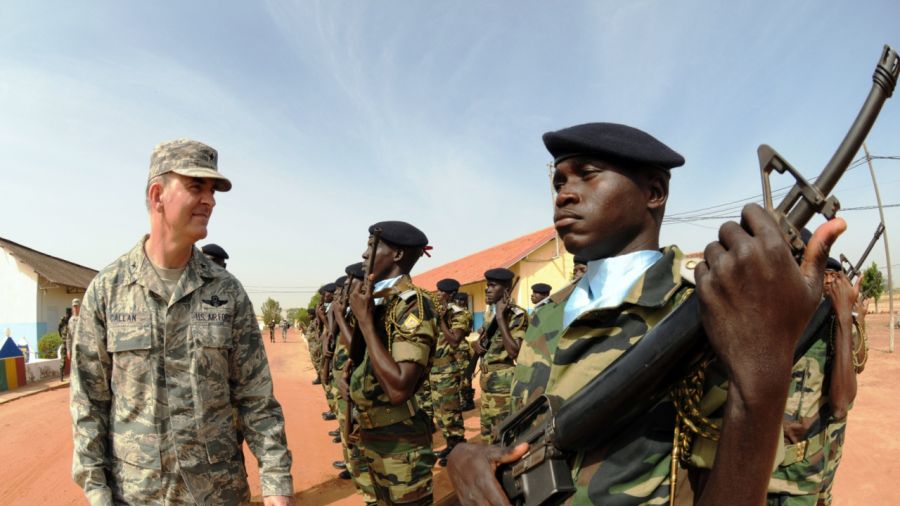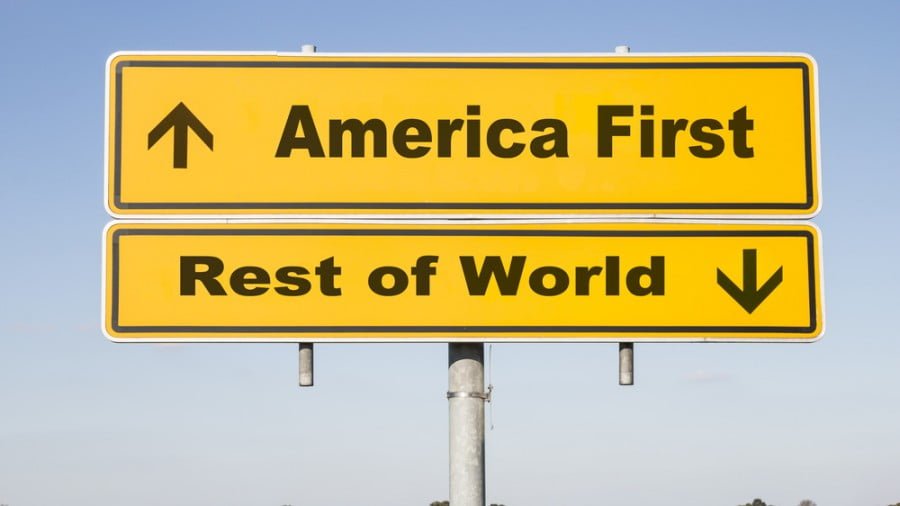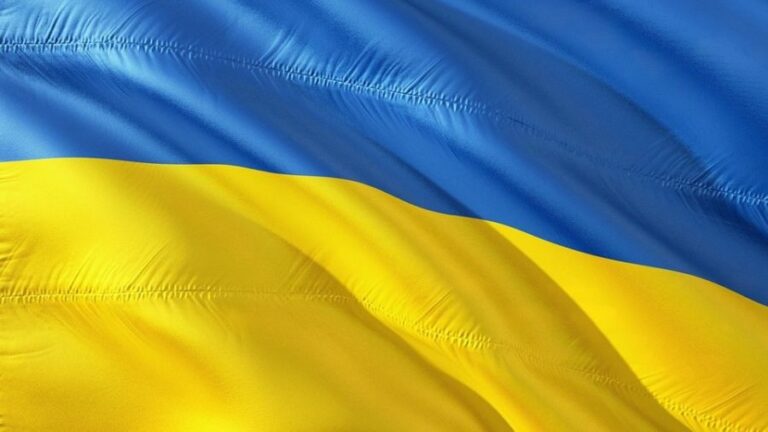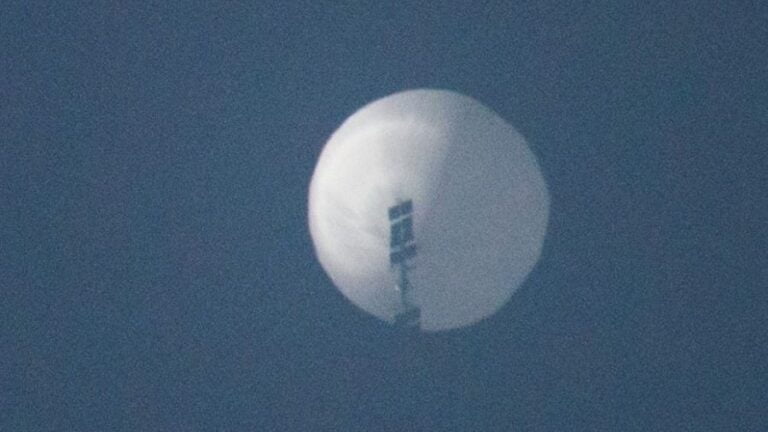Analysis of U.S. Strategy in Africa: Can Washington Catch Up with China?
In early August, the White House issued a strategy for sub-Saharan Africa.[i] This is a rather unique document outlining US goals and methods in the region. In doing so, the text itself begins with a quote from Secretary of State Anthony Blinken, who stated in November 2021 that “Africa will shape the future – and not just the future of the African people, but the entire world. This may seem rather unusual, since the State Department usually publishes its own strategies.
This approach points to synchronised action by various agencies. The Department of Commerce, the Pentagon and others, ranging from federal to local governments, will also be actively pursuing their goals. The various examples cited in the document show that this work has already been underway for years.
The question is how to reach a new level and consolidate their influence. For in any case, Washington will be confronted with the need to counteract other actors that are active in Africa. First and foremost, we are talking about China and Russia, which are openly outlined as challenges and problems for US interests in the region.
“The People’s Republic of China views the region as an important arena for challenging the rules-based international order, promoting its own narrow commercial and geopolitical interests, undermining transparency and openness and weakening US relations with African peoples and governments.
Russia views the region as a fertile environment for parastatal and private military companies, often fomenting instability for strategic and financial gain. Russia is using its security and economic ties as well as disinformation to undermine Africans’ principled opposition to further Russian invasion of Ukraine and related human rights abuses,” it said.
In sum, the strategy outlines four goals to advance U.S. priorities with regional partners over the next five years. It indicates that “the United States will use all of our diplomatic, development and defence capabilities, and strengthen our trade and commercial ties by focusing on digital ecosystems and refocusing on urban hubs to support these goals:
1. Promote openness and open societies;
2. provide a dividend for democracy and security;
3. Promote post-pandemic recovery and economic opportunity;
4. To support conservation, adaptation to climate change and a just energy transition.”
Let’s take a closer look at these points. The first goal is stated in the style of George Soros’ Open Society Institute. It is possible that its assets will also be used to transform the political systems of African countries. The US Democratic Party and the George Soros programme in general, the White House believes that there are too many authoritarian regimes in the region that need to be replaced by more US-loyal ones.
Simply put, a coup by means of a colour revolution or by corrupting the incumbent authorities. Although the White House outwardly declares the need to fight corruption, it is clear to everyone that US foreign policy itself actively uses elements of corruption, which are ephemerally called lobbyism.
It is noted that “despite strong popular support for democracy in sub-Saharan Africa – some 69% according to recent polls – democracy is still lacking. In recent years, Africa has been plagued by a succession of military coups and democratic failures, with the potential for further deterioration of governance and security conditions, as well as negative consequences for neighbouring countries.
In 2022, Freedom House classified only eight sub-Saharan African countries as free – the lowest number since 1991. These failures have increased opportunities for undue foreign influence and reflect the rise of governments that use surveillance technology, spread misinformation, exploit corruption and commit human rights abuses with impunity.
While democratic forces recently won elections in Malawi and Zambia, autocratic leaders in other countries maintain tight control of power. The gap between public aspirations and the closure of civic space in some countries has led to increased instability and a wave of protest movements.”
This quote mentions “undue foreign influence”, which can also be attributed to US interference in the region, both directly and through European proxies and satellites.
As for the methods on the first point, support for reforms, establishment of various foundations and initiatives, legal assistance and promotion of human rights is stated. This is likely to be done with a focus on natural resource control, which is veiled as “helping to achieve transparency in the use of its natural resources, including energy resources and essential minerals, for sustainable development, while helping to strengthen supply chains that are diverse, open and predictable”.
There is no doubt that by said supply chains is meant a monopolisation by the US over important commodities and raw materials sourced from African countries. How the US companies will get the margin is another question. This can be done through shares, payment for consulting services or disguised as loans and credits aimed at relevant projects.
At the very least, this kind of energy on the part of Washington should make African governments wary. Especially as they have not been asked what they want and need.
The second point is directly related to the first one. Here is a quote to make it perfectly clear what the US means:
“The United States will support African democracies by supporting civil society, including reform-minded activists, workers and leaders; empowering marginalised groups such as LGBTQ+ people; focusing on the voices of women and youth in reform efforts; and protecting free and fair elections as necessary but not sufficient components of dynamic democracies. The United States will support democratic opening and opportunity by building on the Presidential Initiative for Democratic Renewal, the Summit for Democracy, and the Year of Action.
The United States will focus our diplomatic efforts, leverage our development programmes and use our defence tools to strengthen and enable our partners to respond to the causes of conflict throughout the region.
We will focus on enhancing the capacity of African partners to promote regional stability and security by enabling more professional, capable and accountable governmental security institutions to provide internal security.
We will also invest in local prevention and peacebuilding efforts to mitigate and address vulnerabilities, using the bipartisan Global Instability Act in coastal areas of West Africa and Mozambique.
The United States will prioritise counter-terrorism resources to reduce the threat from terrorist groups to the United States itself, people, diplomatic and military targets, directing unilateral capabilities only where it is legitimate and where the threat is most acute.
We will work primarily with, with and through our African partners, in coordination with our key allies, bilaterally and multilaterally, to pursue common counterterrorism objectives and promote civilian, non-kinetic approaches where possible and effective.
As part of this approach, we will use special programmes to build the capacity of local security, intelligence and judicial partner agencies to identify, disrupt, disrupt and share information about terrorists and their supporting networks.”
If Washington is going to support so-called “marginalised groups” representing piles of local sodomites or deliberately swaying narratives about same-sex relationships, this clearly drags on to meddling in states’ internal affairs.
On the security front, there are also questions about who and what the US military will support.
It should be noted here that the Pentagon is now actively agitating for private US defence companies to invest in advanced technology and energy projects for the African military through a special fund, Prosper Africa, under the auspices of the US government.[ii]
The Pentagon’s Africa Command, which is responsible for the continent, has bases and installations in a number of countries. There are also CIA cells in the region, as well as employees of other agencies that collect and process various kinds of information. Not to mention representatives of private military companies, at least the infamous Eric Prince structure, which after the scandals in Iraq became actively engaged in its business just in Africa.
As for the U.S. allies, there is already a Global Infrastructure and Investment initiative within the G7, for which it was planned to allocate $600 billion. The U.S. seems to be pushing its partners to pursue their own interests. This initiative is interlinked with the already mentioned Prosper Africa project, as well as others – Power Africa and Feed the Future. In addition, the U.S. hopes to digitally transform Africa through its IT companies.
On the third point, Washington is trying to launch specific economic projects, although some of them, again, fit into the first two goals. Because building inclusive economic communities goes hand in hand with spreading democracy (as the US sees it). Recovery from the coronavirus pandemic and food security are outlined. Interestingly, other diseases that are widespread and dangerous in sub-Saharan Africa are not mentioned at all in the strategy.
From this we can conclude that the mention of covids is of a routine nature, and in reality the US is not at all concerned about the health system in African countries. It must be said that many African states have quite high and early mortality rates, including child mortality. But the White House simply glosses over the issue, promising future welfare in the abstract.
Finally, the fourth point continues the line of the previous ones. It is about the US partnering with African governments, civil society and local communities to support and manage natural ecosystems that will reduce carbon emissions and control climate change. The USA has two programmes for this purpose: the U.S. Plan to Conserve Global Forests: Critical Carbon Sinks and the Central Africa Regional Programme for the Environment. At the same time, Washington intends to launch an energy plan, although no specifics are given.
It is to be noted that China is mentioned a couple of times while Russia is mentioned seven times. Although it is clear that the US will have to contend primarily with the Chinese presence in the region, as Beijing has long had infrastructure projects in Africa, as well as loans which are not politically encumbered and which are welcomed by the local governments.
Of course, apart from the pathetic exhortations spelled out in the strategy, there are objective and rational US interests related to the fact that by 2050 the number of Africans is projected to reach 25% of the world’s population. This means the largest consumer market and labor force. If we apply the law of large numbers, it means intellectual and technological capacity.
Africa also has the second largest area of rainforest in the world and possesses 30% of the most important minerals. In terms of political influence, sub-Saharan Africa has 28% of the vote in the UN system. Manipulation of these votes seems critical to Washington.
Hence this strategic interest in African countries. Despite the instability in some of them, political turmoil and uncertainty, Washington wants to put its paw on the future of the continent, although it has previously been directly involved in numerous destructive projects.
The interest in Africa on the part of both the EU and individual players in this commonwealth, such as Germany and France, is also noteworthy. Paris has recently lost some of its influence, while Berlin is trying to promote its own road map, which has the same aims as those of Washington.
Tellingly, the release of the strategy coincided with Anthony Blinken’s tour of South Africa, the Democratic Republic of Congo and Rwanda. His statements were clearly anti-Russian. In particular, he spoke negatively about the activities of Russian private military companies in Mali and the Central African Republic, which are very much helping governments to establish peace and stability.
In addition, the US Secretary of State had been to Egypt, Ethiopia, Uganda and the Republic of the Congo in July. This testifies to the systematic work of Washington towards the region. But while Moscow is referred to in the context of the crisis in Ukraine and the interaction of security forces, Beijing is a broader issue for the White House.
The fact is that China has for many years been the biggest trading partner with Africa, where the trade turnover reaches $200 billion a year. More than 10,000 Chinese companies are operating in African countries. In 2020, the Belt and Road Initiative’s Infrastructure Development Fund of one billion dollars was established, and two years earlier a $60 billion aid package to Africa was approved [iii].
Since 2011. China has been a major donor and investor in infrastructure projects in Africa and the US is unlikely to catch up and overtake Beijing quickly in this regard.
In addition, China has previously paid the debts of a number of African countries under international commitments, which was positively perceived by both political elites and African societies, despite Western anti-China propaganda accusing Beijing of pursuing neocolonial policies and debt-bondage. There is no negative historical memory of a Chinese presence in Africa and China’s own past offers hope for development in African countries as well.
China also has a direct interest in the long-term stability of Africa, as roughly one-third of the oil entering the Middle Kingdom is extracted and exported from African countries (Sudan, Angola and Nigeria). And a further 20% or so of the cotton that enters China is also of African origin. Not to mention other products – from fruits and vegetables to minerals. Beijing will therefore make an active effort to maintain its influence.
The interest in locating military bases has these very reasons. China’s “pearl necklace” strategy rests in the Horn of Africa, and then continues into Africa’s Heartland by land.
In terms of cyberinfrastructure, China is implementing the Digital Silk Road project in Africa. This is largely being conducted through ZTE, which has previously been awarded $2.7 billion worth of contracts through loans.[iv] This is not news to Washington. Various US think tanks close to the government have long talked about growing Chinese influence in Africa.[v]
That said, assessments regarding US interests have varied. For example, the RAND Corporation noted in one study on the topic that “China is not necessarily a strategic threat to US interests.”[vi] But under Donald Trump’s administration, anti-Chinese rhetoric within the US has increased. And while Democrats have been quite critical of Trump on many foreign policy issues, the line of confrontation with Beijing has continued.
US think tanks continue to develop different solutions to many cases, from Taiwan to bilateral relations. Africa is not overlooked either. At the same time, criticism of Beijing is echoed by US European satellites. Some globalist media outlets continue to peddle anti-China myths and praise the US.
For example, The Economist wrote in May 2022 that “China is showing more swagger in its relations with Africa. Xi Jinping and his envoys regularly engage with Africa; at the triennial China-Africa summits, Chinese leaders like to loudly promise new money and programmes.
America makes a valuable contribution to Africa, but less visibly. Its armed forces are helping African governments fight extremist groups. It has invested heavily in improving public health by supplying western-made covid vaccines that work better than Chinese vaccines (and are free).??
In April, the administration allocated over $200 million in aid to the Horn of Africa in response to the food crisis exacerbated by Russia’s war in Ukraine. There is usually nothing wrong with publicising Western efforts to support democracy, which remains the most popular form of government among Africans. And Mr Biden should also visit Africa.
A less patronising Western approach would be timely. African governments no longer expect huge loans and mega projects from China. China’s condescension towards Vladimir Putin and its punitive approach towards countries such as Lithuania are a reminder that it too can be a bully.
For 20 years, China has been the main partner of African governments seeking to transform their economies. Most African politicians and their citizens have appreciated the benefits arising from this relationship. But turning to China has often been the only option. The West must offer an alternative.”[vii]
In theory, if the West wanted to establish its influence in Africa, it should do so. But the problem is that the West cannot offer any alternative. The only thing it can try to do is to invest more in various major projects. The fact is that while there is a lot of investment from China, it is not much for Africa as a whole, and more money is needed for infrastructure development.[viii]
But there is a question of conditions here. The West is not used to giving money or loans without political demands. Because of this, Chinese loans are more attractive. Furthermore, there are additional opportunities, such as the BRICS bank (where South Africa is one of the members of this club) or the activity of other actors in the region, such as Iran and Turkey.
Understanding this, the US is not likely to compete directly with China, but will try to occupy empty niches and expand its presence where it has a credible position. It is likely that in parallel to this, the US and its agents will wage an information war against China, vilifying any initiatives by Beijing in every possible way.
The likelihood of using the African diaspora living in the U.S. is high. At the very least, this option is indicated in the strategy. However, even such a limited action by Washington could have unpleasant consequences for African countries, as it would limit their sovereignty in one way or another. And the entrenchment of the US military and intelligence services under the pretext of security will threaten the stability of the region.
References:
[i] https://www.whitehouse.gov/briefing-room/press-briefings/2022/08/07/background-press-call-by-senior-administration-officials-previewing-the-u-s-strategy-toward-sub-saharan-africa/
[ii] https://www.prosperafrica.gov/
[iii] https://www.forbes.com/sites/wadeshepard/2019/10/03/what-china-is-really-up-to-in-africa/?sh=5eb7ba1f5930
[iv] https://static1.squarespace.com/static/5652847de4b033f56d2bdc29/t/610844c1b59c8123f42a0c3e/1627931842061/PB+60+-+Tugendhat+and+Voo+-+China+Digital+Silk+Road+Africa.pdf
[v] https://www.csis.org/programs/africa-program/archives/china-africa
[vi] https://www.rand.org/pubs/research_briefs/RB9760.html
[vii] https://www.economist.com/special-report/2022-05-28
[viii] https://www.fpri.org/article/2022/01/chinese-economic-engagement-in-africa/







